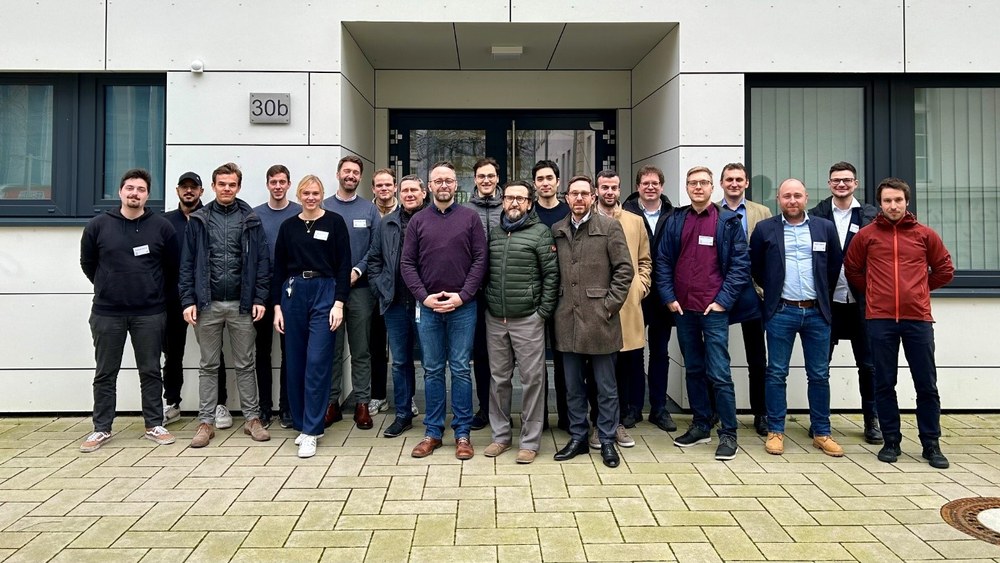ADMIRE Kick-Off Meeting in Hannover


The ADMIRE Kick-Off Event took place on February 27th, 2024 at the Institute for Satellite Geodesy and Inertial Sensing
ADMIRE is an impulse project in the frame of the “Miniaturization in the Aviation and Space Segment”
Primary objective of ADMIRE is to develop disruptive techniques and technologies for satellite constellations with a focus on space-based radar systems
DLR-SI will develop a miniaturized optical constellation acquisition system with potential use-cases in the context of future MirrorSAR or Earth gravimetry missions, e.g. GRACE-C or NGGM
The Kick-Off event for the German Aerospace Center’s (DLR) latest activity in the context of the development of disruptive techniques and technologies for satellite constellations took place on February 27th, 2024 at the DLR Institute for Satellite Geodesy and Inertial Sensing in Hannover. The ADMIRE project (Advanced and Miniaturized Radar-Enabling Technologies) is a collaborative venture that brings together 13 different DLR institutes, involving partners from the Space, Aviation, Security and Transportation authorities.
The outcomes of this project are anticipated to have far-reaching implications, extending the boundaries of technological possibilities in the aerospace and transportation domains. The primary objective of ADMIRE is to develop disruptive techniques and technologies for satellite constellations, aiming to revolutionize current capabilities and open the door to diverse applications. At its core, the project focuses on advancing key aspects of the MirrorSAR concept. This will serve as a main use-case for the study and development of three critical technologies: Fractionated SAR aspects, a miniaturized optical constellation acquisition system (MiniCAS) and energy-efficient neuromorphic on-board computers. Thereby, DLR-SI is responsible for the development of the MiniCAS system. Both, a possible future radar mission that follows the MirrorSAR concept, as well as future Earth gravimetry missions like GRACE-C or NGGM serve as potential use-cases for this system.
The project management team consists of three members from the High-Frequency and Radar Institute in Oberpfaffenhofen (DLR-HR), the Institute for Systems Engineering for Future Mobility in Oldenburg (DLR-SE) and the Institute for Satellite Geodesy and Inertial Sensing in Hannover (DLR-SI). The project began in January 2024 and will continue until the end of 2026.
